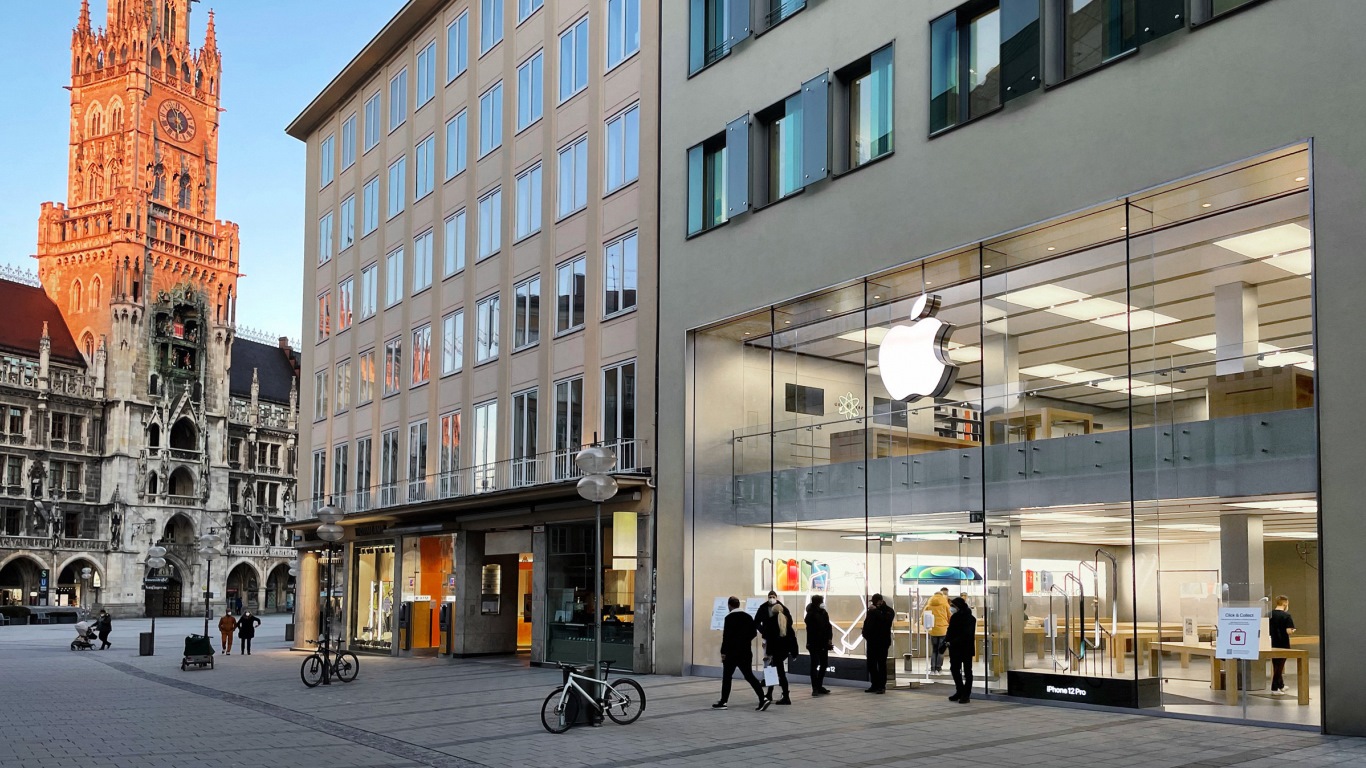Technology
What's Up With Apple: 2020 Supplier Report, More Retail Stores and More

Published:

Over the holiday weekend, Apple Inc. (NASDAQ: AAPL) released its 2020 supplier responsibility report, detailing the company’s efforts to ensure that its suppliers recognized and maintained Apple’s commitment to labor and human rights, health and safety, education and environmental goals.
The 113-page report is densely packed with data. For example, in the area of labor and human rights, Apple said that since 2008, the company has trained 21.5 million supplier employees on their rights and “engaged” 254,265 supplier employees directly about their workplace experiences.
In his introduction to the report, the senior vice president of operations, Sabih Khan, commented on those engagements: “In the few instances where our standards were not met, we moved quickly to provide remedies to all those affected — and in some cases, to suspend our business with suppliers while we took steps to prevent those violations from happening in the future.”
Three weeks ago, The Information published a report on an investigation that identified seven Apple suppliers accused of using forced Uyghur labor in Xinjiang. The investigation named seven suppliers alleged to be using forced Uyghur labor. Of the seven companies, four are named as suppliers in the 2020 supplier list, but none is identified as being among “primary locations where manufacturing for Apple occurs.”
Laura Murphy, professor of human rights and contemporary slavery at Britain’s Sheffield Hallam University, told The Information, “All state-sponsored labor recruitment programs in Xinjiang must be understood as compulsory labor because no minority citizen in the region has the ability to refuse to participate in the programs.” Professor Murphy recently co-authored a report on forced labor in the solar energy industry in Xinjiang.
Following the opening of its new Apple Store on the Via del Corso in Rome, Apple’s senior vice-president of retail and people, Deirdre O’Brien, told a German publication that the company will continue to add to its global retail presence. According to Bloomberg, O’Brien said that retail stores give people a chance to experience new technology, ask questions and attend workshops on Apple’s products.
In March, Apple said it would open a European Silicon Design Center at its facilities in Munich at a cost of about €1 billion over the next three years.
Thank you for reading! Have some feedback for us?
Contact the 24/7 Wall St. editorial team.